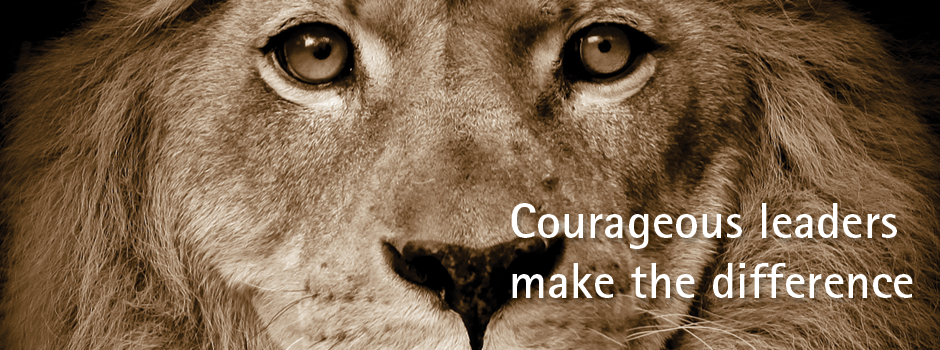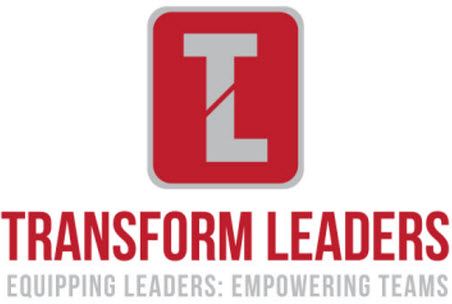
Can you point to a few moments when you were at your best as a leader?
You may or may not have been in the position of a leader. Those times when you influenced an outcome, you forged a new path, or you stood up and challenged the status quo.
Recently I have become even more aware of how important courage is for self-leadership and leading others. Last year my theme was: Acting Courageously. This was because I was convinced that courage was a (maybe THE) key ingredient to being more effective and successful.
I can think of a number of times when I felt I was at my best as a leader. This was the moment I moved from managing to leading. Each of those instances can be traced back to one quality: courage. I displayed courage in that moment or over a prolonged period of time.
When you think of when you were at your best, I would bet that courage was at the centre of it. You moved from safety and comfort seeking behaviour to opportunity and challenge seeking behaviour. You moved beyond comfort and entered your courage zone. This is where our growth happens. One of the major tasks of leadership is to enable ourselves and other to move out of our comfort zone and into our courage zone (but not too far into the distress zone).
As I have explored this topic I have come to see that expressions of courage, in all of their forms, are often what establish a person as a leader. Andy Stanley has helped me articulate some of my thoughts on this topic.
Why is courage so important and how does it establish a person as a leader?
“Courage is the first virtue…it makes all the other virtues possible.” – Aristotle
A leader is one who has the courage to initiate and set out in a new direction, new approach, new norms, or new standards. As you act on your ideas to bring change, your leadership is established.
Think about new music genres in each era, The Beatles, Sex Pistols, Nirvana, and Madonna. All of these tried something new, pushed the boundaries. All of which could have dismally failed. You can imagine the self-doubt, the questions, and the procrastination before releasing a new album. It is so public and permanent.
A leader may not always be the first person to see an opportunity, but they are often the first one to seize an opportunity. You don’t have to be the smartest person in the room. What leadership does require is courage to act.
Often there are many other people who have recognised the issues, opportunities or problems. Often there are many others who have ideas about the solutions but they hold off, they hold back, they give reasons why it isn’t the right time.
Courage is a skill that can be learnt and developed. How do I know that is true? Because we have all faced fears and overcome them. Maybe you were fearful of the water when you were learning to swim. You faced that fear and now you can swim. This built courage. Maybe you didn’t know if you could finish university, you went anyway. You built courage.
We are already courageous and we activate and access our courage.
The difference between a leader and a follower are three things when it comes to courage:
- GUARANTEES v RISK
Leaders take people to places they have never been before. Leaders require those around them to abandon the known and embrace the unknown with no guarantee of success.
The problem is that there are no guarantees that the solution will make things better.
Followers can diagnose and even prescribe the answers but they are not willing to take action. To try something that may not work. Why? Because they fear looking foolish, or they fear that their reputation or career might be damaged.
What leaders are prepared to do and know, is that as they act they will figure things out and problem solve along the way. They don’t let not having a perfect, fool-proof plan get in their way of action. The truth is that most of our plans, once they hit reality, change anyway. The challenge is to strike out without having all the resources, or all the answers, or all of the agreement.
- EASY v CHALLENGING
At some point leaders challenge what is, for the sake of what could, and what we believe should be. This takes courage. If you never challenge the status-quo (personally or organisationally) you don’t make progress and therefore you aren’t leading.
Leadership and change are synonymous. There are times when we need to gear up and push forward with things that may not be popular or understood by people around you. Often these people aren’t against you, but they are against the ideas you are bringing. Sometimes the changes you want to bring are to a role, a person’s behaviour, a strategy or a culture.
There are times of doubt, times of argument and times of criticism. This creates tension and stress within the leader. No one likes these times. This is why courage is so critical – to control the doubts, to remain open to feedback and to stay the course.
If leadership wasn’t hard then there would be no need for leaders. Of course, courage does not mean acting foolishly. You still need to think, plan and collaborate.
Dealing with the challenges takes courage, especially if you have been around the block a few times. You may have had to discipline an employee previously and it didn’t go so well. It takes courage to step up to the plate again and have a conversation about behaviours or performance with another employee because you want to reinforce a new culture. It would be easier to avoid that conversation.
It takes courage to change a strategy or program or product that has been working and is well loved by clients, customers and employees. Life would be easier to ignore it but as a leader that is the job, to do the challenging, difficult things. You might not be loved for it, but you will be respected for having the guts to make the necessary and hard calls.
- FEAR v COURAGE
Leading can conjure up many of the same feelings of fear as taking a walk in the dark. While darkness is the uncertainty that always accompanies change, the darkness also provides the leader with their greatest opportunity.
Courageous leaders are not without fear. Without fear there would be no need for courage. Courage is the ability and willingness to carry our fears and harness the energy that comes with fear into the unknown.
Personally I find fear winning when:
- I am more worried about individual responses than the overall outcomes and good it will produce.
- I am more worried about being judged and seen as incompetent. My reputation is more important than giving it a go.
- I am not prepared to put in the effort to learn something new, I want to coast a bit and not become/do my best.
- I have not been keeping the vision really clear and in front of me.
The outcome of unbridled fear is a missed opportunity. As a leader, you have no idea what hangs in the balance of your decision to act courageously.
SOME QUESTIONS FOR REFLECTIONS:
- What are some of the unexploited or unexplored opportunities that exist in your company or industry?
- To what degree has fear kept you from exploiting or exploring these opportunities?
- What is one step you could take or one change you could make today that would exemplify courageous leadership?
